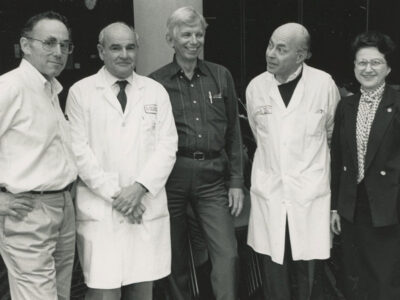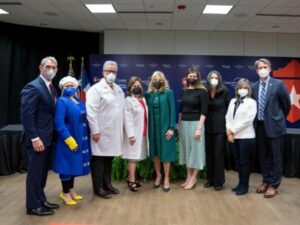Before May 14, 2022, if you mentioned Buffalo, NY, my mind would have taken me back to the city I knew in the 1960s. I grew up there. I was a kid from the ‘hood whose grandmother instilled messages about living a life based on grace and humility from day one. I was a Head Start kid surrounded by people who believed in the power of providing possibility. I was a kid from the poor, Black neighborhood that bordered the poorer, Black neighborhood, but I was rich in the experiences that earned me an acceptance letter to the University of Notre Dame where I got the foundation I needed to go to medical school. It is Buffalo, however, where I got the foundation I needed for life.
Tuesday began a typical day in May in South Texas for me as executive director of the Mays Cancer Center. It was a lovely sunny day for late spring, and at our center we were focused, as we are each day, on the core mission we have had for almost 50 years—to decrease the burden of cancer in San Antonio, South Texas and beyond.
The Institute for Cancer Research (ICR) was and is a hotbed for basic and translational discovery. Initially a standalone institute, the ICR is currently the main science engine for the Fox Chase Cancer Center.
In the trenches on the medicine wards and smoking cessation clinics at Parkland Hospital and UT Southwestern Simmons Cancer Center, I see firsthand the increased prevalence of smoking in the Black population, their frequent use of menthol, and the ravaging toll it takes on their health.
It’s no secret that cancer center marketing and communications has changed drastically over the past 20 years. With the evolution of consumerism and managed care, the immense growth in scope and scale of cancer center activities and the ever-growing dominance of digital marketing and communications is increasingly integral to the work of cancer center executives as they advance patient care and research and boost the bottom lines of even health systems and parent institutions. The NCI Public Affairs & Marketing Network (PAMN) has been a key player and partner through it all.
The rapid acceleration of drug development has exponentially increased the therapeutic options available to patients with cancer.
With the Russian invasion stalled and with a forceful counter-attack by Ukrainian armed forces, many observers caution that the Kremlin might be considering a show of force much as the U.S. did in the atomic bombings of Hiroshima and Nagasaki (The Cancer Letter, Feb. 25, March 4, March 11, 2022).
As a global cancer society, ASCO represents oncology professionals in Ukraine and its neighboring countries, including Poland, Romania, Moldova, Slovakia, and Hungary.
As we enter week three of the Russian invasion of Ukraine, events continue to spiral out of control.
On Feb. 23, two exciting cancer initiatives converged in San Antonio, Texas: the Biden Administration’s Cancer Moonshot, and the third Advancing the Science of Cancer in Latinos biennial conference.















